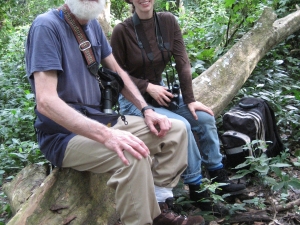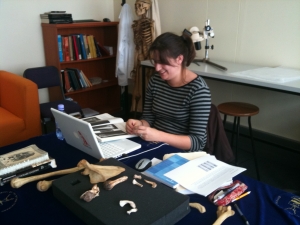For the Love of the Game
During her junior year at Duke, Prim Siripipat '03 felt her tennis career was coming to an end.
She had played since she was 7, training alongside a young Andy Roddick and rising as one of the top ten players in the United States by the time she was 17.
But years of rigorous training and competing took its toll. Siripipat had three surgeries during that junior year -- on both of her shoulders and her left knee -- and she began thinking about her career options as she prepared to leave Duke.
"I knew I wanted to stay in sports," Siripipat says.
So she reached out to her Duke network. Siripipat contacted ESPN commentator Craig Lazarus '88, now ESPN's vice president of the sport's channel's news and assignment desk, and asked if she could spend some time shadowing commentators at the company's headquarters in Bristol, Conn.
"I immediately fell in love with it," she says. "It was so similar to sports because there's a lot of pressure. You have to out-perform. It was the closest thing I could find to tennis."
 1
1
Siripipat made the most of her ESPN experience by asking for career advice from the commentators she met and listening to the experiences of female sportcasters in particular. ESPN's Linda Cohn advised Siripipat to get her start in a smaller journalism market so she could learn the ins and outs of reporting and then to work her way back to ESPN. Siripipat spent the next ten years working in community journalism, as a news anchor at Raleigh's WRAL and at a CBA affliate in Miami, before ESPN came calling.
Now Siripipat spends her days covering sports stories as an ESPN commentator, producing on-air segments for SportsCenter, First Take and ESPN.com; conducting interviews covering live sporting events, such as the U.S. Open; and producing an ESPN podcast called Inside Out. (And, of course, there's the occasional shop talk with fellow Duke alumni.)

No matter where Siripipat goes in the future, she says she'll carry Duke with her. Some of her most formatitve experiences were ones she had at Duke, she says -- experiences such as competing on the tennis courts while also pursuing her rigorous academic interests. (Siripipat majored in sociology and minored in biological anthropology and anatomy.) Duke fed Siripipat's competitive nature, prepared her for the demanding world of sports and connected her to the people who would be there for her every step of the way, she s says.
"The Duke family and alums are just so willing to help one another out. It’s so wonderful," she says. "And I hope I can do the same for other people."





